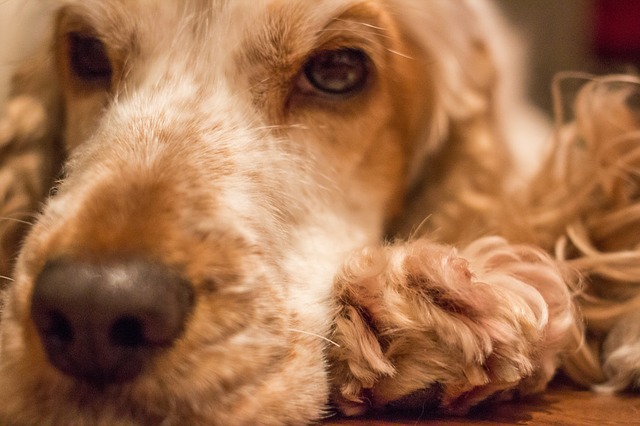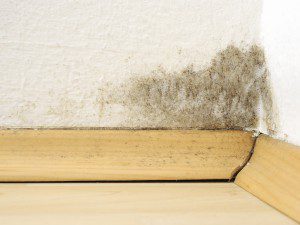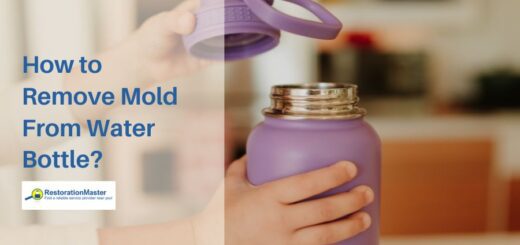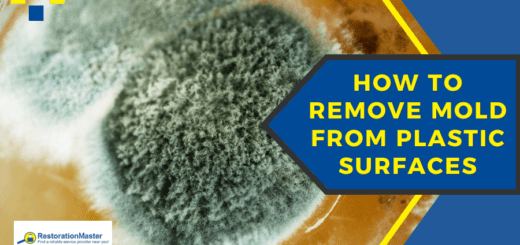How Mold Growth Affects Your Pet’s Health
We know that moldMold is a type of fungus that grows in damp or humid conditi... More causes a variety of chronic and acute heath problems in humans, but what about the pets that share our homes? MoldMold is a type of fungus that grows in damp or humid conditi... More that might cause minor irritation to you could be much more serious for your pets. See how moldMold is a type of fungus that grows in damp or humid conditi... More growth affects your pet’s health and what you can do to prevent mold problems.
Pets come into contact with moldMold is a type of fungus that grows in damp or humid conditi... More in two ways:
- Environmental exposure, via moldMold is a type of fungus that grows in damp or humid conditi... More sporesSpores are microscopic reproductive units of fungi or mold t... More growing in their environment
- Ingestion, through eating moldy food

Depending on the species and individual animal, your pet may react to moldMold is a type of fungus that grows in damp or humid conditi... More you weren’t aware existed because it is hidden behind walls, under carpet, or behind wallpaper. If you notice any of these symptoms and cannot identify a cause, see your vet and call a reputable mold remediationMold remediation is the process of identifying, removing, an... More expert, such as RestorationMaster.
Allergic Reactions
Allergic-type symptoms, such as sneezing, scratching, and excessive licking are the most common moldMold is a type of fungus that grows in damp or humid conditi... More reaction, especially in cats, dogs, and other mammals. If you notice your pets scratching or biting themselves and you’ve ruled out fleas, they could be reacting to moldMold is a type of fungus that grows in damp or humid conditi... More in the environment.
Respiratory Problems
Rapid or labored breathing is always an emergency situation and requires immediate veterinary care.
Lethargy and reluctance to play or exercise are signs of chronic respiratory difficulty that could be caused by exposure to moldMold is a type of fungus that grows in damp or humid conditi... More. If you notice your pet losing energy quickly or lacking interest in active games, examine their environment for moldMold is a type of fungus that grows in damp or humid conditi... More.
Aspergillosis
Aspergillosis is an internal, systemic disease that is often fatal, especially to pet birds. It is caused by inhaled moldMold is a type of fungus that grows in damp or humid conditi... More sporesSpores are microscopic reproductive units of fungi or mold t... More and can infect the lungs, gastrointestinal tract, skin, eyes, and brain. Birds do not always develop Aspergillosis when exposed to moldMold is a type of fungus that grows in damp or humid conditi... More; it is often the result of moldMold is a type of fungus that grows in damp or humid conditi... More exposure combined with a weakened immune system due to stress or other environmental toxins.
How to Keep Your Pet Safe From Mold
Eliminating or reducing the amount of moldMold is a type of fungus that grows in damp or humid conditi... More in your pet’s environment isn’t difficult. Follow these steps to safeguard your pet’s health:
-
- Keep pet food in a sealed, airtight container. Discard food immediately if you see signs of moldMold is a type of fungus that grows in damp or humid conditi... More.

- Clean birdcages, litter boxes, and pet beds in hot soapy water at least once per month. Dry them thoroughly.
- Inspect your home, especially areas frequented by your pet, for moldMold is a type of fungus that grows in damp or humid conditi... More. Pay special attention to the kitchen, bathrooms, basement, attic, and laundry room – any area that moisture might collect.
- Clean moldMold is a type of fungus that grows in damp or humid conditi... More immediately with a solutionA solution is a homogeneous mixture of two or more substance... More of hot water and household detergent. If the area is large – greater than 10 square feet – or you suspect a moldMold is a type of fungus that grows in damp or humid conditi... More problem but cannot find it, call a professional mold remediation service.












